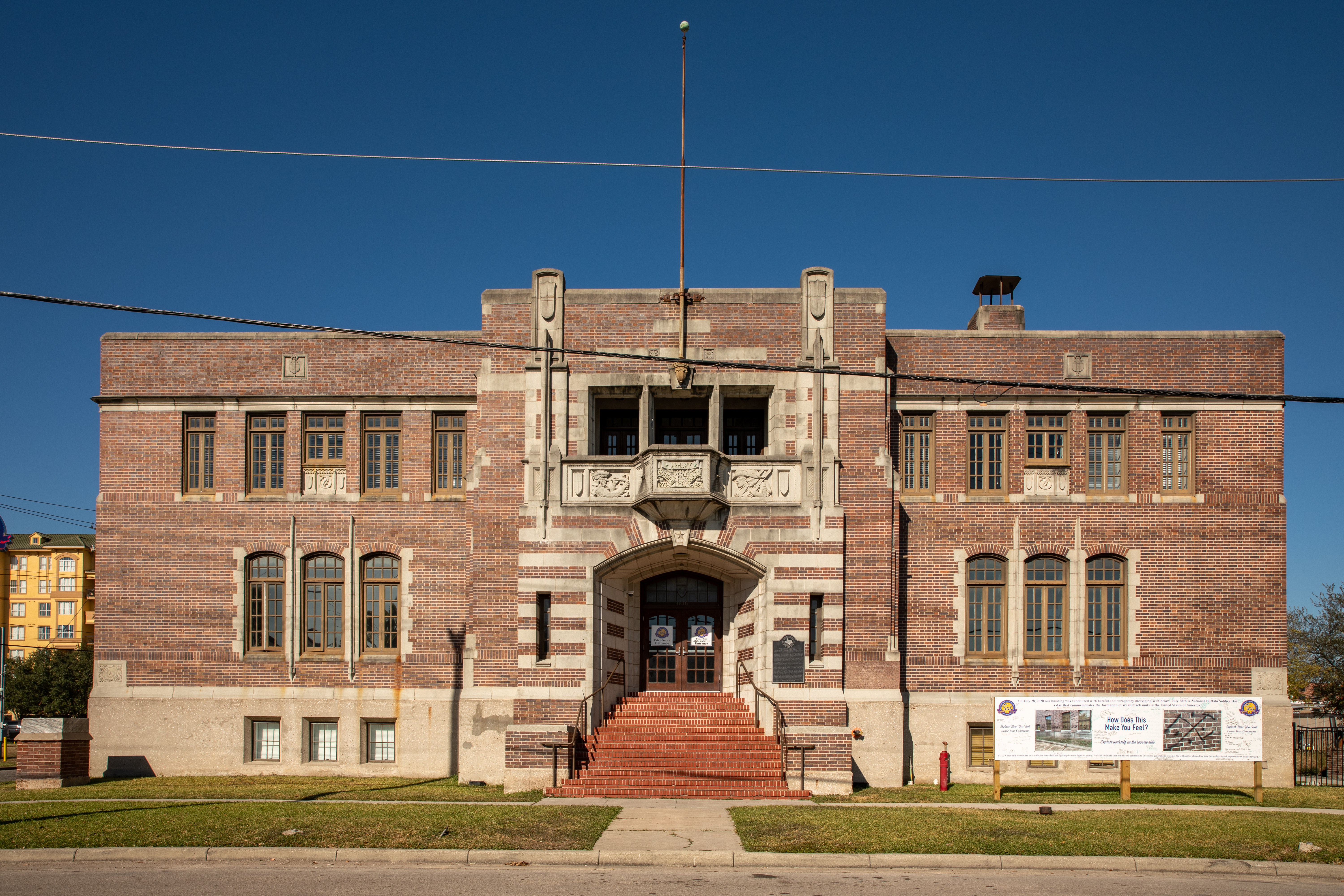
THC holds historic preservation easements on nearly 300 architectural properties throughout the state of Texas. There are easements on county courthouses, forts, ranch structures, theaters, historic homes, murals, train depots, libraries, and many other types of historic properties. THC's Division of Architecture staff provides oversight, consultation, and educational materials to those who have easements on their properties. For information on Archeological Easements, please contact the Archeology Division.
What are Preservation Covenants and Easements?
A historic preservation easement is a voluntary legal agreement which protects a significant historic property and assures the property's historic character and character-defining features will be preserved. Each easement is tailored to a particular property, based on the type of property and its history and architectural features.
Easements preserve Texas history for the public's interest and protect the state's or nation's financial investment by requiring the landowner to maintain the property in good condition. An easement also requires review of future development and alterations to a property so as to ensure the preservation of its historic and architectural character.
Easements are recorded by a county clerk and run with the land, so the requirements apply to all future property owners for the duration of the easement. Some easements cover a specific period with an end date, while others are entered in perpetuity. The rules associated with grant programs typically establish an easement's term. THC is referred to as the easement "grantee" since the property owner grants the easement to THC. The property owner is referred to as the "grantor" since they are granting the preservation easement to THC.
In addition to preservation easements, the THC holds deed covenants on historic properties that were once under federal ownership but were transferred or sold to a private property owner. These deed covenants contain legally enforceable restrictions or conditions to ensure the long-term preservation of a property's significant historic character and features.
Who is required to have a Preservation Covenant or Easement?
Recipients of the following THC grant programs, which are administered by DOA, may require the filing of an easement with the appropriate county clerk:
- The Texas Preservation Trust Fund (TPTF)
- The Texas Historic Courthouse Preservation Program (THCPP)
Not all grants require easements. Please check with appropriate THC staff to determine whether your project will require signing an easement.
THC also accepts or requires easements from the following National Park Service grants for properties in Texas. The easements associated with these grants are administered by THC's DOA and Community Heritage Development (CHD) staff:
- Certified Local Governments (CLG)
- Emergency Supplemental Historic Preservation Fund (ESHPF)
- Save America's Treasures
- Historically Black Colleges and Universities Grant Program
- Main Street Building Façade Improvement Grants
- Other federally funded grants
Please see the Grants, Tax Credits, and Funding section of our website to learn more about THC's grant programs.
Easement Program Requirements
If granting an easement or deed covenant on a property, THC requires the following actions of the property owner:
- Maintaining the baseline condition of the property - that is, the condition of a property at the end of the grant-funded scope of work, as described in the Completion Report, in addition to any subsequent work approved by the THC and undertaken by property owner.
- Notifying DOA of any proposed changes to the property (see "Easement Project Review" section below)
- Conducting routine maintenance to ensure the property is in good standing, and prevent deterioration of the property
- Annual monitoring of the property by THC to assess its condition
Easement Project Review
Contact the DOA Project Reviewer during the planning phase of any anticipated work or changes to a property, including any planned major repairs. When you consult the THC early on a project, DOA staff will provide guidance to help set your project on the appropriate path forward. Early consultation can help you avoid redesign of a fully-developed project, which can be costly. DOA staff have worked with property owners on hundreds of rehabilitation and restoration projects, and, as a result, have extensive experience and knowledge about potential problems property owners may face in the easement project review process. As such, DOA staff can guide property owners on ways to effectively prevent those problems.
For more information about the Easement Program, please see our PDF brochure.
Contact Us
If you have questions about the Easement Program, please contact the program staff using the information listed here.
-
Phone:
+1 512-463-6047 -
Email:
easements@thc.texas.gov -
Address:
P.O. Box 12276
Austin, TX 78711
United States
